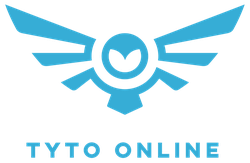Life Science Learning Through Gaming
Formats: Available for Windows and Mac, Web browser version in development
Product Website: Tyto Online for Schools
Company Website: Immersed Games
Immersed Games is an education technology company developing immersive learning tools via games. Their flagship product is Tyto Online, a game designed for teachers to use across their school year to implement active, inquiry-based science learning experiences. Tyto Online is made up of inquiry-based quests that take about 15 minutes to complete and in-depth creative sandboxes.
Additionally, Immersed Games has released a stand-alone game, Tyto Ecology, which is the sandbox for ecology where students create their own ecosystems, but as a stand-alone game for people only interested on that part (creating ecosystems is also part of Tyto Online).
What does it help with?
While playing Tyto Online, learners gain knowledge about life science principles through solving problems in quests or building in sandboxes, like creating their own ecosystems or breeding dragon-like creatures as they master heredity. To succeed at the game, students must master the content and prove they have gained knowledge. One example would be to convince a scientist if a species is invasive or not. To achieve this, students must come up with the correct argument as well as collect data within the game to substantiate their assertions.
What grade and age range?
Tyto Online is designed for middle schoolers, grades 6th through 8th.
Is this core/supplemental/special needs/extracurricular/professional development or what?
Supplemental/Extracurricular: Tyto Online can function as a great learning tool used within a blended learning curriculum. It may also be utilized as an extracurricular learning application for students looking to experience an interactive, game based learning environment.
What subject, topic, and standards is it mapped to?
Tyto Online is currently focused on life sciences. In future developments Immersed Games will continue to expand out to additional STEM and STEAM subjects. Immersed Games has built their products focusing on the Next Generation Science Standards (NGSS).
What lesson time does it use?
Tyto Online is a progressive game which can be utilized flexibly. Quests generally take around 15 minutes to complete, with Sandboxes being flexible where students can play for a few minutes at a time or spend hours in them.
What is the pricing model?
Tyto Online is currently $5 per student per year with an inaugural year discount.
Tyto Ecology is $6.99 for the game and $3.99 for expansion packs.
Are there services around it?
The Founder & CEO, Lindsey Tropf, offers professional development webinars and 1-on-1 meetings for teachers who would like more guidance on implementing Tyto Online in their classrooms. The developers have also created a Getting Started video series, have live chat available on the website, and a full support page with FAQs and ticket submission.
What makes it unique?
In conversation with the founder, Lindsey Tropf, she discussed how when surveying teachers, it was found that while many are looking to add educational games to their curriculum, they had trouble finding games offering strong gameplay as well as strong pedagogy. Many games that have been designed for educational purposes were lacking in their ability to provide a truly immersive learning environment. She realized a need and saw an opportunity to develop a game aligned with NGSS which can be utilized across a curriculum.
A description of the characteristics--how is it designed for user interface, user experience? What instructional design principles are at work here?
Tyto Online and Tyto Ecology are designed in accordance with NGSS standards and provide a game-based platform for students to learn about life sciences.
Tyto Online has been designed based on constructivist and inquiry-based principles, requiring students to seek answers and pull in information in order to both learn and succeed in the game.
For example, in a Heredity quest, students figure out why two pink plants bred together resulted in some yellow flowers. Many quests require students to collect data and make arguments. Some of the quests help more with reinforcement of learned terms, like categorization quests where they explore the world and identify abiotic vs. biotic factors. Teachers can use these quests to introduce concepts originally, or help explore in applied settings.
The Sandboxes are more open (Ecology is building an ecosystem and Heredity breeding dragon-like creatures). For the Ecology Sandbox, students work to build ecosystems within a “biodome” that supports multiple types of ecosystems including the Mojave Desert, Amazon Rainforest, Himalayan Forest, and more. Students start with nothing and then progressively add more species across producers, consumers, and decomposers. They find how quickly the web of interactions becomes complex and often make errors that lead to great conversations and insights into ecosystems, such as having a boom of quick-breeding rabbits that they need to figure out how to correct. Teachers can use this as an establishing experience for discussion and expanding their students’ learning as they use that knowledge to build better ecosystems.
For educators, Immersed Games has a built-in dashboard where teachers can view all quests a student has embarked on and see analytics showing how the student has done and how they are spending their time within the game.










